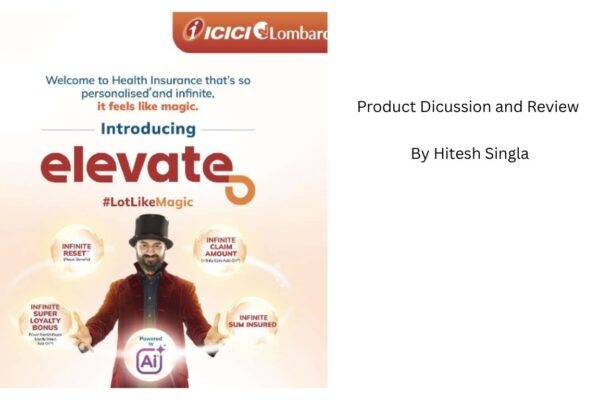9 top reasons why health insurance claims get denied and steps to overcome them
A medical emergency requiring hospitalisation brings significant anxiety. During such times, the security of a health insurance plan is paramount. We invest in these plans expecting our medical bills to be covered, allowing us to focus on recovery. However, the distress of a rejected claim, forcing out-of-pocket payments, can be devastating.
According to the Insurance Regulatory and Development Authority of India’s (Irdai’s) annual report for 2023-24, health and general insurers paid 82% of claims by volume and 71.3% by value (Rs 1.17 crore). However, of the remaining 28.7% by value, nearly 13% were rejected, and over 9% were repudiated.
Understanding the difference between rejection and repudiation is essential. “Rejection” typically occurs before a detailed review, often due to incomplete information and is reversible. “Repudiation” results from a thorough review, where the insurer determines the claim is not covered under the policy’s terms.
Incorrect or Incomplete Information:
Errors in claim forms, such as incorrect policy numbers, misspelled names, or inaccurate medical details, are a primary cause of claim denials. These errors lead to significant rework, prolonged communication, and considerable anxiety for policyholders.
To minimise these issues, it is strongly recommended that you personally complete all application and claim forms. Relying on agents or other individuals can increase the risk of inaccuracies, as they may lack complete or up-to-date information.
Solution: Thoroughly verify all information before submitting a claim, ensuring it aligns precisely with your policy documents and medical records. Furthermore, utilizing cashless claim facilities at network hospitals can significantly reduce the potential for errors and streamline the claim process.
Discrepancies in Diagnosis, Treatment, and Pre-Authorization:
Inconsistencies between the diagnosis or treatment listed on the claim form and the corresponding medical records, or treatments falling outside the policy’s coverage, can lead insurers to view claims as potentially fraudulent, resulting in denial.
Furthermore, many treatments or procedures necessitate prior approval, or pre-authorization, from the Best insurance company Delhi. Proceeding with such treatments without obtaining the required approval will likely result in claim rejection.
Solution: To prevent denials due to discrepancies or lack of pre-authorization, it is crucial to seek pre-authorization from your insurer for any non-routine or costly treatments before commencing them. Treatments undertaken without the insurer’s prior approval may not be eligible for reimbursement.
Non-Disclosure of Pre-Existing Conditions:
Failure to disclose pre-existing medical conditions during policy purchase can lead to claim rejection. While some individuals may conceal this information to avoid higher premiums or policy denial, this practice is strongly discouraged. It’s important to note that, regrettably, some advisors may suggest concealing information to facilitate a sale. However, this is unethical and ultimately detrimental to the policyholder.
Solution: Honesty and transparency regarding your medical history are paramount when applying for insurance. It is crucial to declare all pre-existing conditions and relevant family medical history. This ensures accurate policy issuance and prevents future claim denials.
Claims During the Waiting Period:
Most health insurance policies include waiting periods for specific conditions or treatments. Claims submitted within these periods will be denied. It is essential to understand these waiting periods when purchasing a policy. Typically, there are three main types:
- Initial 30-Day Waiting Period: This is a standard period at the beginning of the policy.
- Waiting Period for Specified Illnesses: This period applies to specific conditions listed in the policy.
- Waiting Period for Pre-Existing Diseases: This period applies to conditions present before the policy’s inception.
These waiting periods are detailed in policy brochures and policy wordings.
Solution: Thoroughly understand your policy’s waiting periods and plan treatments accordingly. Reputable advisors should clearly explain these periods. At Wealthinn, we prioritize transparency by providing comprehensive information about waiting periods to our customers from the outset.
Policy Lapses Due to Non-Payment of Premiums:
Failure to pay premiums on time results in policy lapse, suspending coverage and leading to claim rejections. Once a policy expires due to non-renewal, the insurer is not obligated to cover medical expenses. Every policy has a defined validity period, requiring renewal through premium payment before the due date. While a grace period is typically provided, its duration varies between insurers. Exceeding both the due date and the grace period renders the policy null and void.
Solution: Maintain continuous coverage by ensuring timely premium payments. Consider setting up automatic payments to avoid missed deadlines.
Here’s a refined version of that section, focusing on clarity, professionalism, and a more effective presentation of your video resource:
Treatments Not Covered by the Policy (Exclusions):
Health insurance policies contain a comprehensive list of exclusions, detailing treatments and procedures that are not covered. Claims for excluded treatments will be denied. Common exclusions often include:
- Dental treatments
- Mental health conditions
- Outpatient department (OPD) expenses
- Maternity-related claims
For a more detailed explanation of common exclusions, please refer to our video : Click here to check the video
Solution: Thoroughly review your policy documents to understand the specific list of exclusions. While our video provides a general overview, it is essential to consult your individual policy documents for precise details. Policy documents are the only source of truth for your specific policy coverage. Check here the video.
Delay in Claim Intimation or Filing:
Insurance companies establish strict deadlines for claim notification. Each policy has a specific timeframe within which the insurer must be informed of a claim. Failure to notify the insurer within this stipulated period can result in claim denial. Delays in claim intimation significantly jeopardize the chances of a successful claim.
Solution: Familiarize yourself thoroughly with your insurer’s claim notification deadlines and adhere to them strictly. These deadlines are typically outlined in your policy documents. Utilizing your insurer’s mobile application can provide convenient access to these deadlines and streamline the notification process.
Exhaustion of Sum Insured:
When medical expenses surpass the policy’s sum insured, the excess amount is not covered. If the sum insured has been fully utilized in previous claims within the same policy year, no further claims can be filed. Similarly, if a single claim exceeds the sum insured, the insurer will only reimburse up to the limit of the sum insured. The policyholder is responsible for covering any remaining balance.
Solution: Select a policy with a sum insured that adequately addresses your potential medical needs. Pay close attention to refill and renewal benefits, as these can provide additional coverage. At Wealthinn, we prioritize explaining these benefits to our clients to ensure they understand their policy’s full scope.
Insufficient or Missing Documentation:
Claims necessitate comprehensive supporting documentation, including medical bills, prescriptions, and detailed medical reports. Incomplete or missing documentation is a common cause of claim rejection.
Solution: Maintain meticulous records of all medical expenses and related documents. Ensure that all required paperwork is submitted accurately and completely. Utilizing cashless claim facilities at network hospitals can significantly reduce documentation-related issues and streamline the claim process.
Conclusion :
In essence, navigating the complexities of health insurance claims requires diligence and a thorough understanding of policy terms. While the statistics from IRDAI highlight a significant percentage of successful claims, the distress associated with rejected or repudiated claims underscores the importance of proactive measures. By meticulously completing forms, understanding pre-authorization requirements, honestly disclosing pre-existing conditions, adhering to waiting periods, ensuring timely premium payments, comprehending policy exclusions, respecting claim deadlines, selecting adequate coverage, and maintaining thorough documentation, policyholders can significantly mitigate the risk of claim denials. Ultimately, informed and responsible policy management is crucial for transforming health insurance from a source of anxiety into a reliable safety net during medical emergencies. We would help you with the same when you buy your health insurance from us, Do book your online appointment with us





